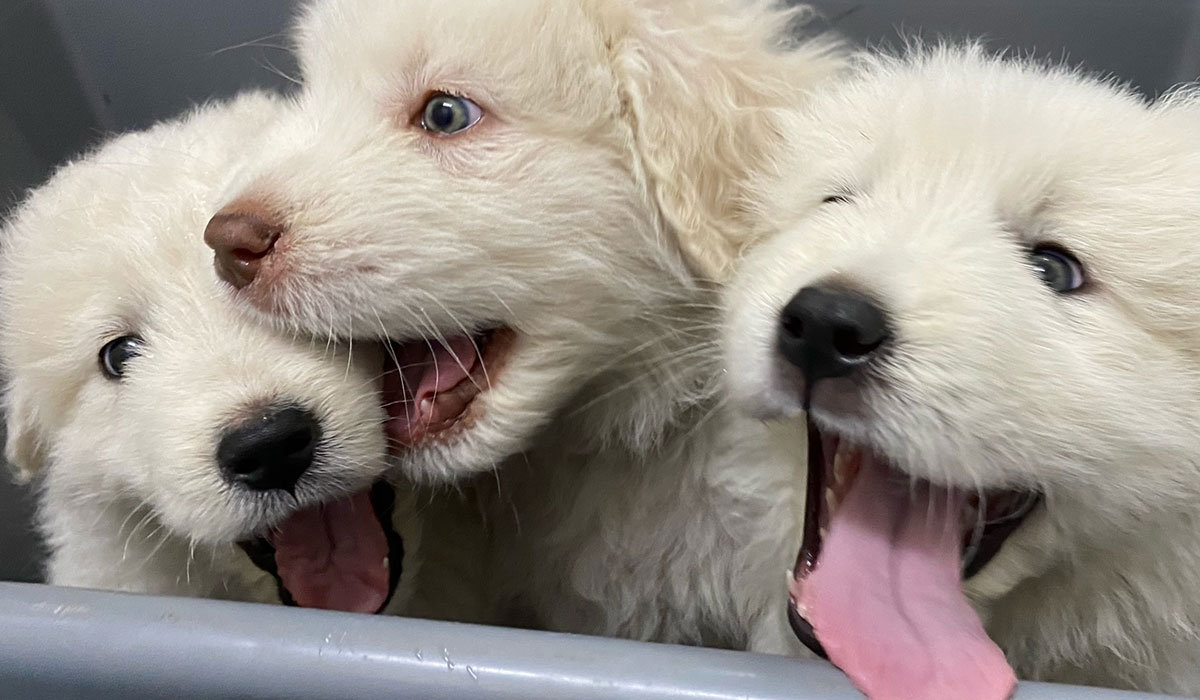
Puppy School in Aldinga & Willunga

Puppy School in Aldinga & Willunga
Puppy Training Classes
Classes run for 5 weeks.
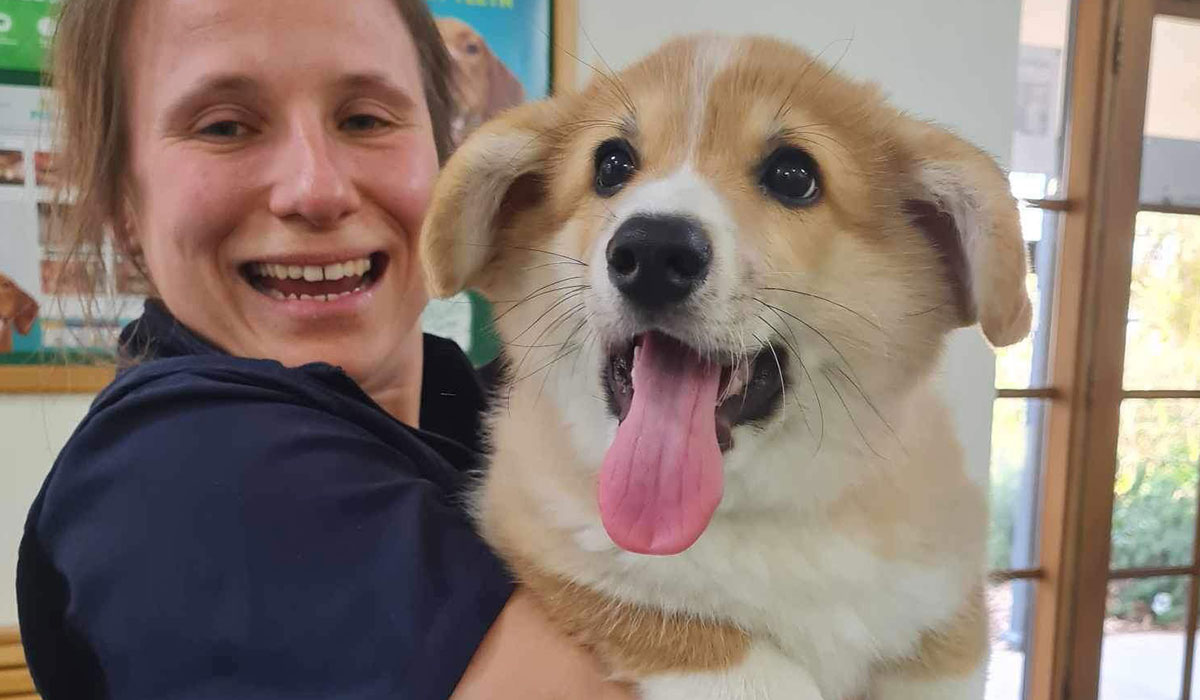
Puppy School
Puppies have a socialisation period between 3-16 weeks of age, where they need to have positive experiences with other dogs, people, children and new experiences including things like sights, sounds and surfaces.
Any good or bad experiences during this sensitive period can have significant life long effects on your dog’s behaviour.
Puppy Preschool is of great benefit to all puppies, and is strongly recommended to help your puppy start off on the “right paw”. It will give your puppy the best chance of becoming a controlled well-behaved socially accepted adult.
The aims of Puppy Preschool is
- socialisation with other puppies and people in a safe and controlled situation.
- To help puppies develop into well behaved and socially accepted members of the community.
- Educate owners on basic training methods using reward-based training.
- To teach your puppy “calm” behaviour.
- Education on basic health care and nutrition.
- Help with puppy problems such as house training, mouthing, jumping up and chewing.
- To help create a lasting bond between you and your puppy.
- And most importantly to have lots of fun with your puppy!
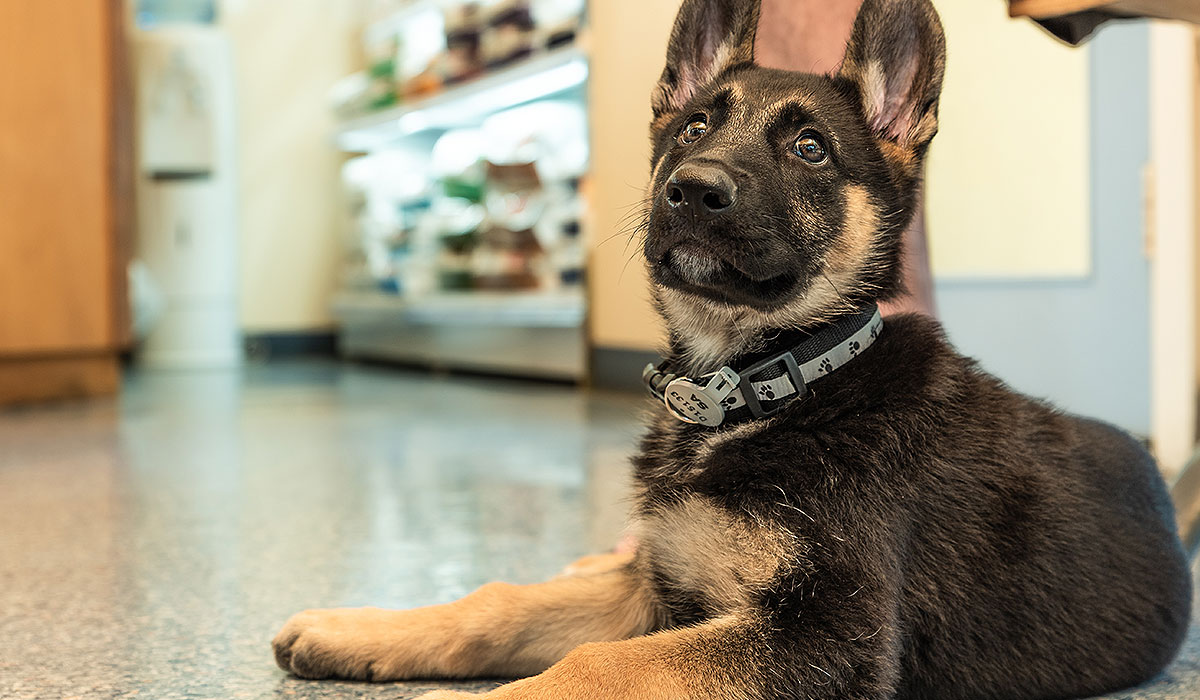
What’s included in Puppy Preschool?
Informative Power point presentation, a puppy preschool manual with loads of training information, treats for your puppy each week, a graduation ceremony, class photo and show bag. Each week you will have the opportunity to ask questions about any issues or problems you may be experiencing. Our experienced trainers are continually updating their knowledge and there will be two instructors per class. Places are limited so be sure to book your puppy in early.
School for Dogs
- Socialisation with other puppies and people in a safe and controlled manner.
- To identify behavioural problems at an early age.
- To teach basic training methods using reward based training.
- To teach your puppy calm behaviour.
- Education on normal puppy development and dog behaviour.
- Education on basic health care and nutrition.
- To help with any problems you may be experiencing.
- To help make trips to the vet more enjoyable.
- And most importantly to have lots of fun with your puppy!
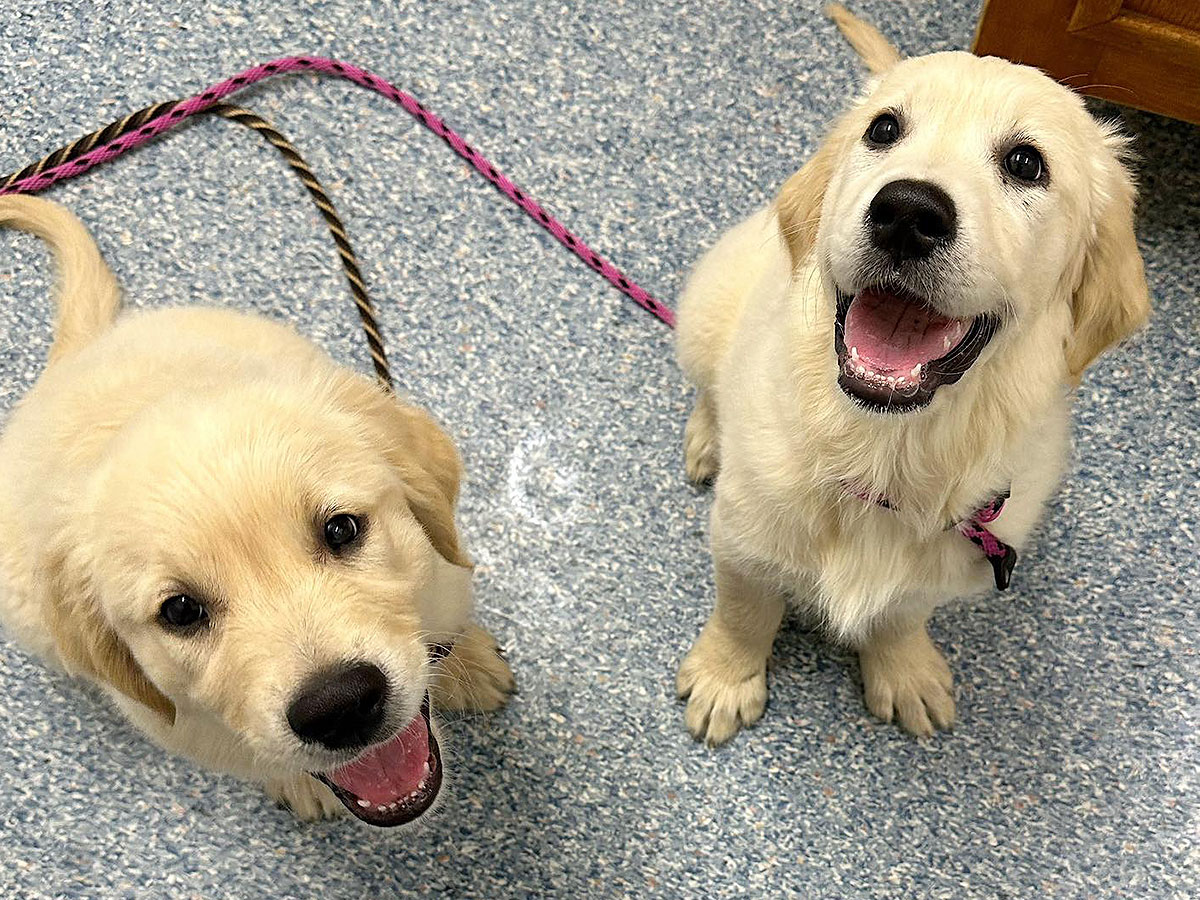
Included in Puppy Training School
- Power point presentation for class 1.
- A course handbook.
- Treats for your puppy each week.
- Hospital tour.
- A graduation ceremony.
- Class photo and show bag.
- The opportunity to ask about any issues or problems you may be experiencing.
- Plenty of valuable information and experience from our instructors, who are continually updating their knowledge.
- Two instructors per class.
Obedience training dog
A puppy is a very exciting addition to your family and depends on you for everything; food, water, exercise, training, good health and above all lots of love and attention. We hope these notes will help give you guidance on some of the common dilemmas faced by new puppy owners. If you have any other questions concerning anything related to your puppys health please ask for advice.
Dog Training
To ensure you and your dog remain the best of friends, it is important to set the rules for your puppy as soon as possible and stick to them. Behaviours that are cute whilst they are little will not be so cute when they are older and bigger. They will not grow out of these behaviours! It is much easier to teach your puppy the appropriate behaviours first, rather than try and correct bad behaviours later.
Week 1 of Puppy Training
PowerPoint presentation with the owners (no puppies first week) where we discuss:
- why dogs do what they do, and dissect their behaviour in depth.
- Common behaviour problems
- Explain how to socialise your puppy with the world around them (it’s not just about meeting other dogs!). Our role is to do this in a positive, rewarding and non-threatening way.
- Learn to put your “doggles” on, in other words- understand the subtle signs of body language in dogs.
Week 2 of Puppy Training
- Discuss why we use positive reinforcement and rewards-based training and how it works
- Set up your puppy with foundation of good manners, cover basic training:
- Teaching their name
- Sit
- Settle
- Drop/Down
- Arm you with strategies to help develop your puppy into an emotionally resilient and well-adjusted dog
Week 3 of Puppy Training
- Training your puppy to be handled/groomed by desensitizing them to touch, step by step.
- Get your dog used to being handled and checked over (very helpful for nail trims, ear checks, baths and preparing for vet visits!)
- Training “wait” using different approaches and applying to various situations
Week 4 of Puppy Training
- Loose leash walking training and troubleshooting common problems
- Discussing suitable walking aids for YOUR dog
- Get you on the right track with training a strong recall/”come”
Week 5 of Puppy Training
- Further leash walking training
- Discussion on “heel” and why it is handy piece of training to have in your toolbox
- When you need to see the vet
- Signs that indicate your dog is unwell
- Common toxins to dogs
- Snake bite awareness
- When to desex YOUR dog?
- Nutrition information
- Parasite control options
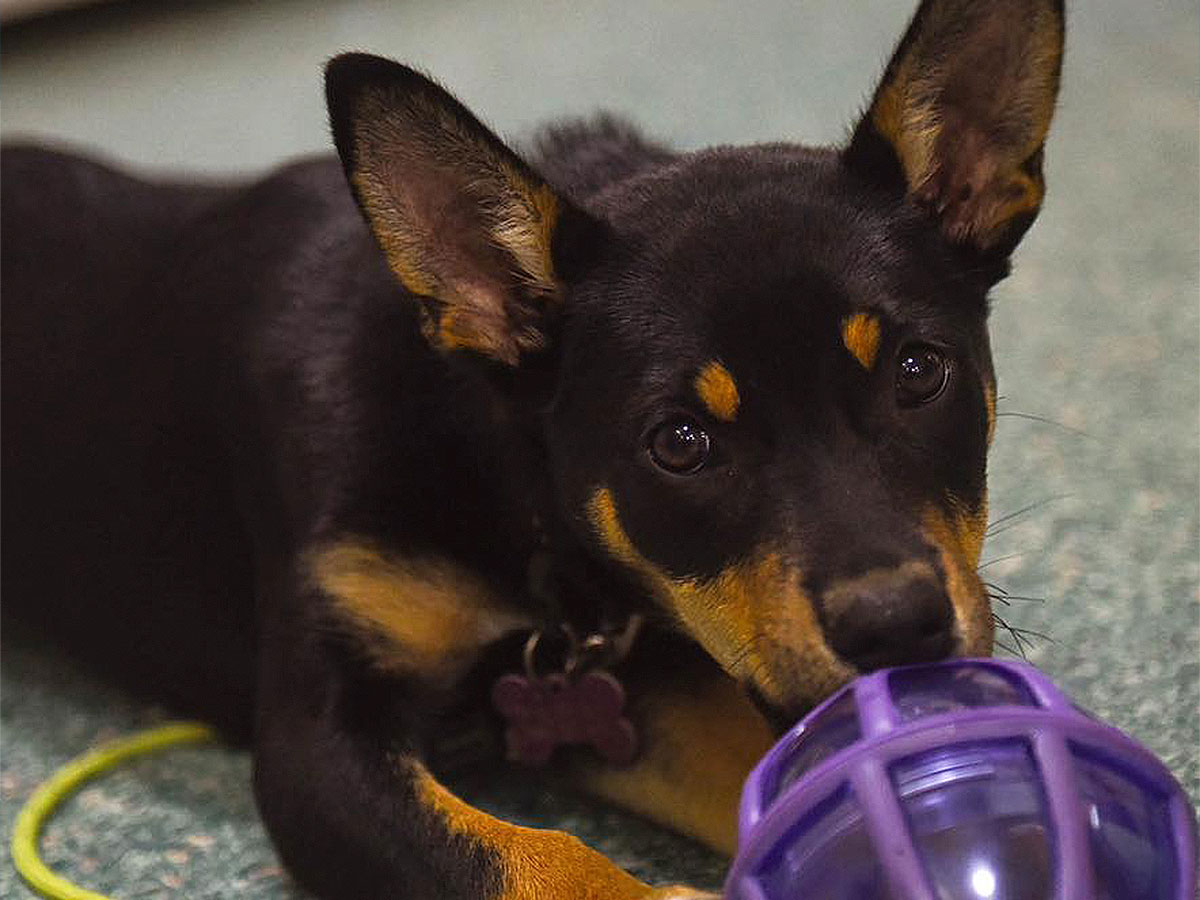
Dog Training
A puppy is a very exciting addition to your family and depends on you for everything; food, water, exercise, training, good health and above all lots of love and attention. We hope these notes will help give you guidance on some of the common dilemmas faced by new puppy owners. If you have any other questions concerning anything related to your puppys health please ask for advice.
To ensure you and your dog remain the best of friends, it is important to set the rules for your puppy as soon as possible and stick to them. Behaviours that are cute whilst they are little will not be so cute when they are older and bigger. They will not grow out of these behaviours! It is much easier to teach your puppy the appropriate behaviours first, rather than try and correct bad behaviours later.
Puppy House Training
Dogs are social animals that require their family’s company. This can be better achieved by allowing your dog inside the house. Unfortunately, puppies do not realise that toileting inside is not the correct thing to do, which means you have to teach it. Good management is key and rewards for toileting in the right place. This will take time and patients, but if you start doing things the right way then it will be a less stressful; process.
Some great toilet training tips include:
- Take out regularly during puppies waking hours
- Stay outside for 30 seconds – 20 minutes
- Watch for sniffing, circling, whining or pacing.
- Take outside after ‘life event’ eg eating, drinking, sleeping, and playing.
- Use an enzyme cleaner to efficiently clean up accidents in the house. Avoid disinfectant and All-purpose spray.
- If you see your puppy toileting inside say “I missed that one” I will get the next one. Do not punish (smacking, yelling or rubbing nose in it). This makes puppies worried and they will hide when toileting from you. No one likes a poo behind a door.
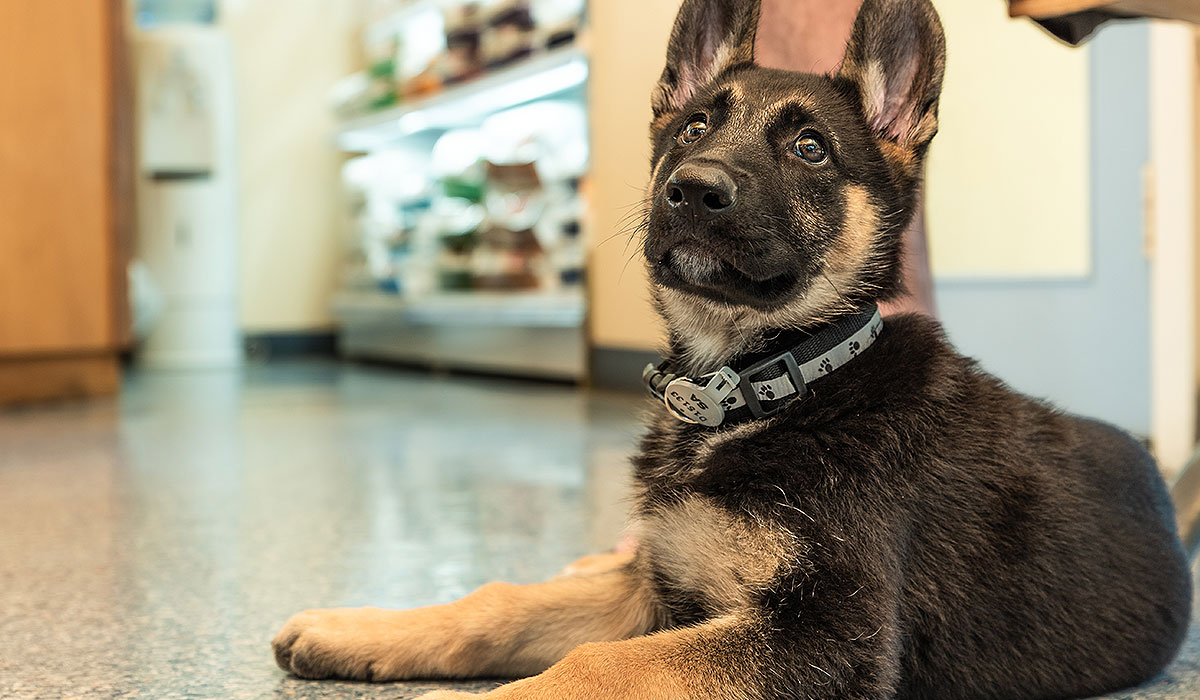
Join Puppy School in Aldinga
To join the course your pup needs to:
Be between 6-14 weeks of age (at the start of the course)
Have had a recent vet check.
Be up to date with vaccination and worming.
